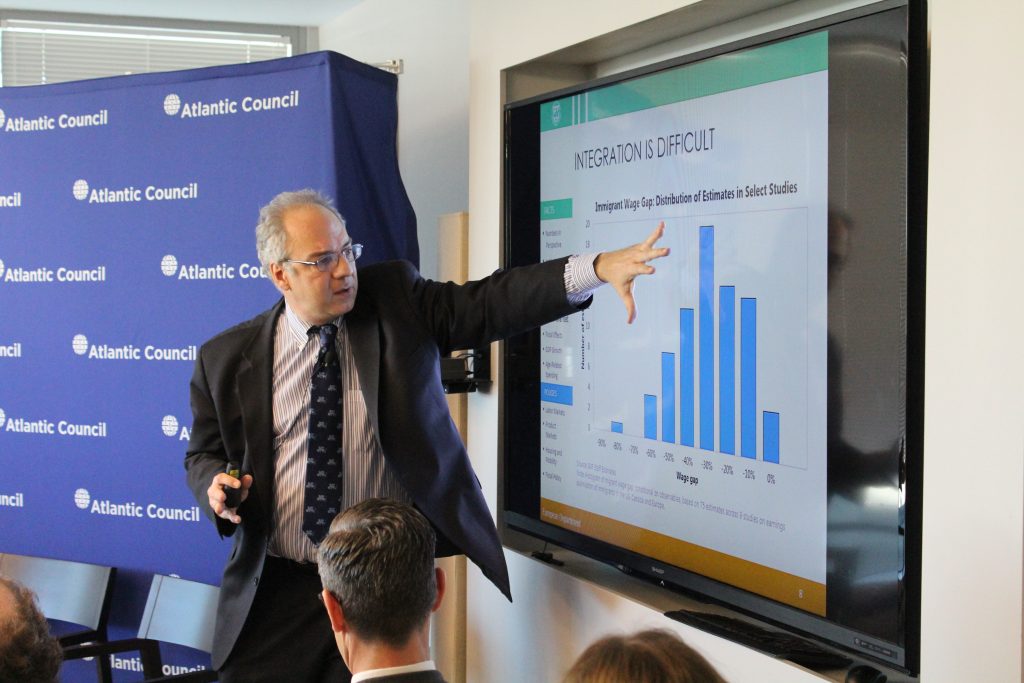Head of the IMF Mission to Turkey, Antonio Spilimbergo, presents the findings from a new study conducted by the International Monetary Fund about the true economic effects of the refugee surge on European economies
On April 5, the Atlantic Council hosted Antonio Spilimbergo, Head of the International Monetary Fund Mission to Turkey, who highlighted the long-term positive effect of refugees’ integration in European labor markets through the findings of the new IMF study called The Refugee Surge in Europe: Economic Challenges. A discussion panel after Laura Lane, President of Global Public Affairs at UPS and Moreno Bertoldi, Principal Advisor to the EU Delegation to the United States, and was moderated by Katerina Sokou, Washington Correspondent for Kathimerini Daily
Executive VP of the Atlantic Council, Damon Wilson, Director of the Global Business & Economics Program at the Atlantic Council, Andrea Montanino, and EuroGrowth Task Force members C. Boyden Gray and Laura Lane are taking their seats before Antonio Spilimbergo’s lecture.
- Europe faces the largest wave of asylum seekers in recent history, with more than 1 million incomers in 2015 alone.
- In the short term, the macroeconomic effect of the refugee surge is likely to be a modest increase in GDP growth, reflecting the small fiscal cost of supporting asylum seekers.
EuroGrowth Task Force member and President of Global Public Affairs of UPS, Laura Lane, speaks about how the refugee surge has affected the private sector. There is a tremendous opportunity with the new workforce, but bottlenecking at borders has affected cross-border trade flows.
“The private sector and the civil society are also part of the solution to this crisis” — Laura Lane, President of Global Public Affairs, UPS
- In the long term, the economic impact will depend on how refugees integrate in the host countries’ labor markets.
- Previous experiences show that refugees experience lower employment rates and wages, but those differences diminish over time. Effective policies and regulations can greatly speed up the integration process.
After the conversation the audience takes the opportunity to talk with the panel.
- Refugees will have a positive demographic impact, slowing pension expenditure growth in host countries.
